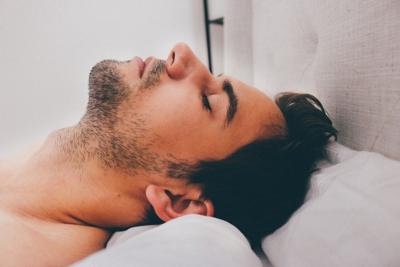
If you’re a person prone to anxiety and stress, then without a doubt, you must suffer from sleep deprivation more often than not. Insomnia and uninterrupted sleep are often correlated to any mental health issue, and anxiety is nothing different. If you suffer from anxiety, then chances are you have trouble shutting off your brain each night; your thoughts can be overpowering, and you’re unable to rest. You wake up the next day completely on edge, exhausted, and frustrated.
When this happens more than once each week, it ends up taking a toll on your mental and physical health.
Many healthcare professionals and physicians recommend doing a number of things and adopting a few lifestyle changes in order to improve your quality of sleep each night. If you are stressed due to work, consider locum tenens coverage to make changes to your career. If you want to know what is locum tenens, click here.
Some of these recommendations are as follows:
Seek treatment
If you seek help, you might be nipping this problem in the bud once and for all. Discuss your sleeping problems with your doctor, and he/she will recommend an action plan. For starters, they can recommend heading out to a sleep clinic to understand more about your sleep cycle through the night. Many mental health professionals will also recommend therapy, cognitive-behavioral treatments, or medications. They aim to treat anxiety, its correlation with your sleep disturbance, and the root cause of your stress.
Adjust your sleeping environment
Healthcare professionals can also recommend a number of natural treatments and remedies that you can do by yourself in the comfort of your own home. One way you can achieve an environment that encourages proper sleeping is to sleep in a dark room, or even create a soft-lighting ambiance to calm you down each night.
Consider using a white noise machine as well that can help clear your mind from those pesky thoughts that keep you up at night. It will help you focus on the sound, the place you’re in, and the mood it sets and you’ll forget all about what’s truly troubling you. You can also use an aromatherapy diffuser with essential or lavender oils – which was proven to reduce anxiety, calm you down, and make you feel relaxed. Limit the use of electronics in the bedroom as much as you can; be sure not to keep the TV on when you’re trying to sleep, and avoid the never-ending scrolling everyone does on their smartphone. The ‘blue light effect’ actually contributes to your inability to sleep each night, forcing your brain to think that you should be awake.
Upgrade your bedding
For starters, your sleeping environment needs to be comfortable, inviting, and relaxing – especially your bed. Consider upgrading your bed and mattress by reading some reviews on the best mattresses available that can enhance your sleep cycle each night. Having a worn-out mattress has proven to cause interrupted sleep each night, so finding a brand-new one that will promote a good night’s sleep is essential. Consider investing in cozy bedding as well; get a cozy comforter, a quilt, and fluffy pillows that will make you more relaxed and comfortable to sleep.
One bedding item that is often recommended to those who suffer from anxiety and stress is a weighted blanket. Weighted blankets were proven to promote a much better sleep cycle because it has the ability to calm your nervous system down. Many people liken its effects to a hug, which, in fact, releases serotonin in your body and reduces anxiety.
Meditate and exercise
Being active mentally and physically throughout the day will enhance your sleep cycle each night and keep your anxiety at bay. Mindfulness meditation, for example, can allow you to change your own perspective when you face any problem. This type of meditation is often suggested to those who have anxiety-induced insomnia. It’s been proven that a 15-minute meditation session each night can increase your chances of sleeping soundly.
Managing to exercise daily will also help you sleep better; exercising can release endorphins in the body, thus unleashing any stress you had. If you participate in any kind of exercise, even if it’s a walk or a jog, for 30 minutes daily, you’ll find that you’re able to rest easy each night.
Make some bedtime changes
Before bedtime, consider following a few habits that will help garner a good night’s sleep. For starters, stop drinking coffee in the evening, and only limit it to the mornings. Cut back on sugar or any energizing food, and aim at consuming calming foods or beverages like chamomile tea.
One piece of advice that is recommended to those who suffer from insomnia is to not remain in bed if they’re unable to sleep. That will bring on more frustration and will further keep you awake. Consider getting out of bed and engaging in something mentally stimulating like reading, writing, or even doing some mild exercises like yoga.
The relationship between sleep and anxiety is still, to this day, studied and researched. Insomnia can cause a myriad of health drawbacks enough to drive anyone mad. This is why it’s recommended to seek help, especially from your physician, to understand why you’re unable to sleep, and what you can do to promote a good night’s sleep.


(0) comments
We welcome your comments
Log In
Post a comment as Guest
Keep it Clean. Please avoid obscene, vulgar, lewd, racist or sexually-oriented language.
PLEASE TURN OFF YOUR CAPS LOCK.
Don't Threaten. Threats of harming another person will not be tolerated.
Be Truthful. Don't knowingly lie about anyone or anything.
Be Nice. No racism, sexism or any sort of -ism that is degrading to another person.
Be Proactive. Use the 'Report' link on each comment to let us know of abusive posts.
Share with Us. We'd love to hear eyewitness accounts, the history behind an article.